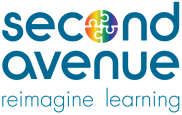Reimagine Learning
Authentic Assessments
One of the main objections to traditional approaches to assessment is the claim that the testing experience itself is an inherently flawed way to measure many important skills. For example, wouldn’t it be strange if the only thing you needed to do in order to become a dentist was to pass a multiple choice test? Wouldn’t we want to require prospective dentists to actually perform dental procedures before trusting them with our teeth? How about barbers, or bakers, or nurses, or teachers? In each case, there might be some aspects of the job that can be measured effectively with traditional testing approaches, but those approaches would have to be supplemented with an actual (authentic) display of the skill in question.
This is the argument behind authentic assessments, tasks in which the actual skill being measured is indistinguishable from the action being performed. You want to know if someone can bake a cake? Have them bake a cake. Want to know if they can drive a car? Give them a road test. Want to see if someone can paint a picture? Don’t give them a multiple choice test about painting; make them paint a picture. To get into art school, you should need more than the SAT or ACT; you should have to produce a portfolio that proves that you have the skill required.
Advantages
This approach to assessment is most valuable, and probably required, for skills that have performance aspects that cannot be simulated through technology. Many physical skills and professional practices that involve physical skills fit this description. However, proponents of authentic assessments want to take this approach much further, applying it everywhere, especially in job-related fields such as project management, entrepreneurship, and social work. The motivation behind this is clear: we get the best information about who can do a task by actually seeing it performed. Every other approach is at least one step removed from the real thing.
Disadvantages
While this approach has intuitive appeal, it does have drawbacks. Individually examining each learner submission is very time consuming, and can be subjective. While experts will probably agree whether a left turn was executed properly, they might disagree in their evaluation of a marketing plan, a business case, or a strategic analysis. In addition, some skills, such as collaboration, depend on other people, and it might be unfair to conclude that someone is bad at collaborating when they might simply have had uncooperative partners. Other skills, such as the ability to start a business, might depend at least a little on luck, and penalizing people for bad luck also seems unfair. Another issue arises when performances cannot be evaluated in a reasonable timeframe. If you want use authentic assessments to demonstrate the ability to conduct long-term planning, would you be willing to wait 10 years to find out how you did? Security is a related issue. While a proctored environment can feel artificial, at least we can be sure whose work it was. When work is done outside a controlled environment, academic fraud is a real threat.
When faced with these issues, proponents of authentic assessments make reasonable accommodations. Perhaps instead of waiting for 10 years to evaluate the ability to do long-term planning, it would be acceptable to write a paper about relevant issues. Some tasks might need to be performed in a proctored environment, and so on. These accommodations can create a bit of a gap between the skill being measured and the performance used it measure it, but they do make the process more practical.
When to use them
When the skill in question needs to be performed directly in order to be measured, authentic assessments are the reasonable (and probably the only) way to go. Sometimes, there’s nothing like the real thing.
Categories
- Accessibility (5)
- Blog (47)
- E-Learning and Serious Games (16)
- Election Edge (3)
- Guest Blogger (1)
- Learning Design (11)
- News (6)
- Primary Sources (4)
- Remote Learning (3)
- Second Avenue Voices (13)
- Teacher Tools (10)
- Technology (4)
- Uncategorized (9)
- Webinar (11)

